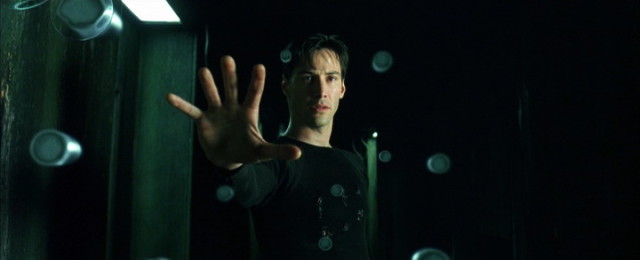One of the most important skills in a screenwriter’s tool bag is being able to convey a character’s attributes through action. So if you want to show that a character is a dick, show him kicking a dog. If you want to show that a girl is kind, show her holding the door open for an old lady.
Where this skill becomes truly powerful, though, is when you use it to highlight a character’s fatal flaw. This combination not only has the power to tell the audience what kind of person your character is, but also highlight the thing that’s holding them back in life, and therefore the weakness they will need to overcome by the end of the movie.
Weak or inexperienced writers try and sell these flaws through dialogue. So if their hero’s flaw is that they don’t believe in themselves, they’ll make sure that character utters the words, “I just don’t think I’m good enough.” Or “I don’t believe I have what it takes.” Not only is this on-the-nose. It’s lazy. If you want to be a power writer, find an action to sell that flaw. A good example is Neo in The Matrix. Whether he’s fighting Morpheus in the dojo or about to jump between buildings, his demeanor is fear. He’s not sure he can do it. That action (or non-action) tells us he doesn’t believe in himself yet.
I’ve figured out a few things about conveying flaws over the years. In comedies and animation, we’ll see flaws expressed through action right when we meet our hero. The first moment we meet Stu in The Hangover, he’s being pushed around by his wife. The first moment we meet Joy in Inside Out, she’s obsessed with everyone being happy. Because these genres tend to celebrate the extremes, being more “in your face” with actions is acceptable.
However, once we get into more dramatic films, writers tend to take their time, exposing flaws gradually and subtly over a series of scenes. Going back to The Matrix, we don’t know that Neo doesn’t believe in himself for awhile. We spend some time getting to know his daily life first, and the Wachowskis drop hints here and there, but we don’t really know that that’s his issue until we get to his training.
I’ve also found that certain flaws are more “actionable” than others. For example, selfishness is a popular flaw in modern cinema at least partly due to how easy it is to convey through action. All you have to do is show Han Solo decline an invitation to do something for the betterment of the group and we know he’s selfish. Ditto with arrogance or stubbornness or envy. These are very “actionable” flaws.
The REAL writers out there can express even the toughest “non-actionable” flaws through action. And that’s today’s challenge. I want you to write a scene – it can be about anything – but you must convey the main character’s fatal flaw through an action. What’s the flaw in question? The character is emotionally distant. They don’t make emotional connections with anybody. Oh, and did I mention that the scene had to be entertaining? Yeah, that’s the thing with screenwriting. Just pulling off one thing in a scene isn’t enough. You have to do it while entertaining the audience.
Hey, I warned you this would be hard. So write out your scenes in the comments. Upvote your favorites. I’ll give a shout-out to the winner tomorrow. Good luck!


